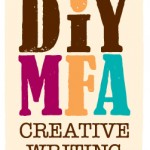Yesterday, an article in the Guardian raised an important question: can creative writing be taught? The article listed opinions from various authors, many of whom believe that creative writing degrees are moot because the writing process can’t be taught. Others believe that writing can be taught, but only by writers who have already been published because they know how to write something of publication quality. As a writer and teacher, I’m not sure I agree with most of the authors interviewed in that article. Here are some of my thoughts on the matter:
The best way for a writer to learn the craft is to read. I think a lot of people underestimate the power of reading. As a creative writing teacher, I incorporate readings from literature into all of my lectures. My students read something–either a short story or a poem or an essay–for every class. I believe that writers who don’t read are doing themselves and their work a disservice.
Not all great writers make great teachers. Some of my best writing teachers have not been big-name authors. In fact, one of my best teachers had not published her first novel until after I had taken two or three classes with her, yet she taught me more about writing than many other more prominent novelists.
While the Master’s degree can be great for some writers, you can get a lot of the same benefits on your own. I’m a firm believer in do-it-yourself, otherwise I wouldn’t have devised the DIY MFA. There’s no reason why writers can’t get many of the benefits of a Master’s degree, even without enrolling in school. You can do the literature study on your own by reading with a writer’s eye, and a great deal of craft can be learned through practice. Connecting with other writers in conferences, critique groups or online can be a great way to gain perspective on your writing. Most importantly, just write!
What do you think? Can creative writing be taught?
















 Call me Gabi (pronounced gah-BEE). I'm a writer, freelance teacher, and a lover of books and words. I'm also the instigator of DIY MFA. iggi's my sidekick, but he thinks he's the brains behind this operation.
Call me Gabi (pronounced gah-BEE). I'm a writer, freelance teacher, and a lover of books and words. I'm also the instigator of DIY MFA. iggi's my sidekick, but he thinks he's the brains behind this operation.
 ROW80 Check-In (2)
ROW80 Check-In (2) YA Cafe: Villains and Antagonists
YA Cafe: Villains and Antagonists Introducing Writer Fuel
Introducing Writer Fuel ROW80 Check-In (1)
ROW80 Check-In (1)